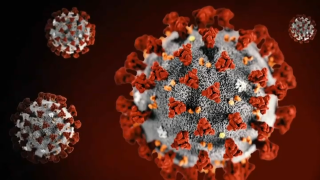
A study was published on March 8 that described the mental health impact of the pandemic as "minimal." Yes, seriously.
Published in the British Medical Journal, the paper — which analyzed over 90,000 studies of mental health, depression and anxiety from before the pandemic and during its early months — repeatedly use the words "minimal" and "minimally" to describe its findings. For example, "Among general population studies, no changes were found for general mental health ... or anxiety symptoms, but depression symptoms worsened minimally."
If this were April 2020, I would proceed to explain the study in more detail and then quote experts patiently emphasizing the fact of human resilience. Then I would tell you that your feelings are valid and give you an evidence-based pep talk.
But this is not 2020. And we know that, since then, we've all become at least a little unwell.
I, for example, have acquired far too many pets, not enough friends and a lot of debt that's mostly hyaluronic-acid related. And please don't look at my tower of books in the corner — I still don't speak Spanish.
Frankly, the only thing that gets me through the day is knowing I'm not the only one. And I'm really not, as the delightfully depressing replies to a BBC tweet about the study show. The tweet has garnered 110 million views and almost 46,000 comments, roughly zero of them from people who agree with the study’s findings.
U.S. & World
Now, I'm not here to disparage the study authors or assess the research based on, you know, actual science (though the authors do acknowledge that a lack of data for certain high-risk groups limited the findings). But, as a health journalist, I am here to walk you through the memes and try to figure out what all this means.
"I got divorced on Zoom," @joshnorthsouth deadpanned on Twitter.
"Last year I wrote a book about Nic Cage biting a guy who then becomes Nic Cage," wrote @IanFortey.
"I ate one chicken nugget a minute for 60 minutes and streamed it on twitch," added @creepygnomes.
No matter our weirdest pandemic purchases or hobbies, we can all relate. And it seems like the importance of not taking mental health lightly is the core message.
"People are telling their stories about the ways that living through a global pandemic impacted them, and each of these stories represents a real example of harm — even if it's not easily quantified into data points," Stefani Goerlich, a Detroit-based psychotherapist, tells TODAY.com. As psychologist Barbara Drescher once said, "The plural of anecdotes is data.”
In other words, through our tweets and memes, we are performing something akin to mass emotional support. Yes, the memes are undoubtedly funny, but they may also serve an important purpose.
"They are sharing their experiences because it's a way to speak back to the idea that all harm is measurable or that one conclusion is the default correct conclusion," says Goerlich.
"I've yet to have a client ask me to help them quantify their suffering," she continues. "But these kind of studies do matter to scientists, researchers and people who make public policy. They are going to focus on what is measurable."
But, Goerlich affirms, just because "your story doesn't fall neatly into a measurable box ... that doesn't mean your story doesn't matter or that the science doesn't care," she says.
We may not be able to feel the ways that science cares about us right now, but open a tab on any corner of the internet and you will find hordes of people ready to commiserate with your pandemic struggles — and make you LOL.
This story first appeared on TODAY.com. More from TODAY



